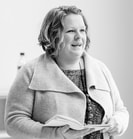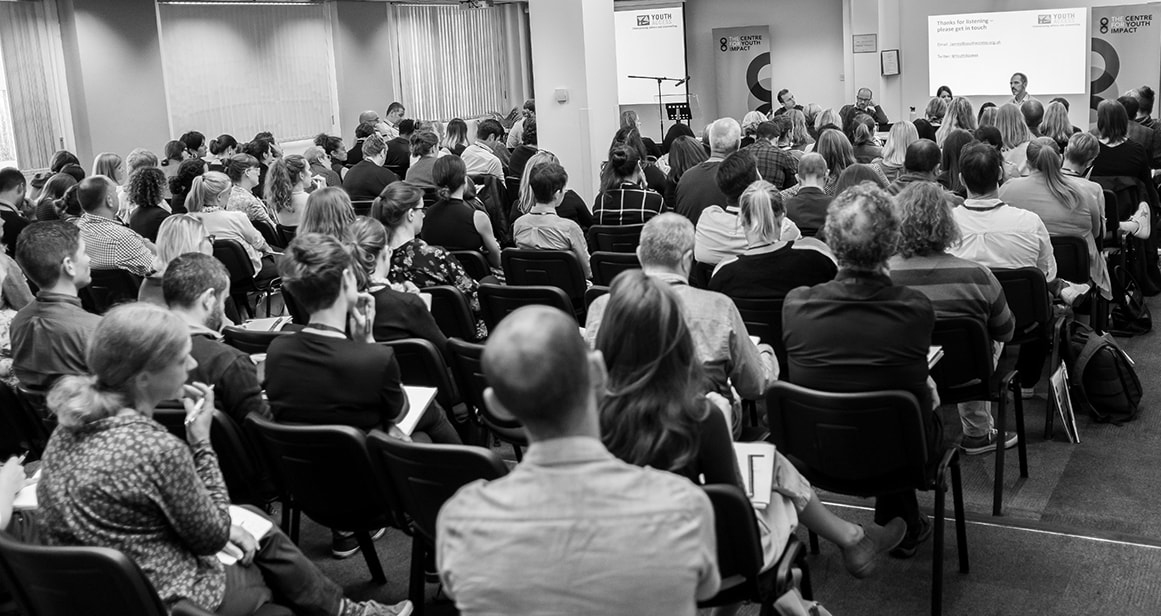Reflections on the Gathering 2018
2018-10-11
 In this blog, Bethia McNeil, CEO at the Centre for Youth Impact, shares her reflections on our annual conference. This year's conference explored the relationship between impact, power and change.
In this blog, Bethia McNeil, CEO at the Centre for Youth Impact, shares her reflections on our annual conference. This year's conference explored the relationship between impact, power and change.
This year’s conference was the Centre’s largest ever. Creating space for much bigger event was something of an experiment for us. I never want us to become complacent about people wanting to join the Centre’s events, so some nervousness on our part is a good thing. We were delighted that so many of you did want to be at the Gathering this year (we had an audience of over 160), but we’ll never take it for granted.
This year’s event also felt like our busiest and perhaps most intense to date. I’m still absorbing and processing much of what was discussed on the day. I greatly respect the time and thinking that was represented and shared in the room, both by speakers and participants. The Centre only exists because of this willingness to share and participate: there’s a power in that I want to recognise. I also want to recognise that talking about power and privilege is a something of a fad, as Derek Bardowell said on the day, but I think the conversation about power in evaluation is one worth having.
I heard reasons to be frustrated and reasons to be energised at our conference. I’m glad I did - I think we should always strive to create space for both at our events.
Polly Neate opened the event with her reflections on evidence and power, and challenged us with her vision of dystopia, where the quest for evidence of impact blinds us to knowledge and shuts down the very voices we should work hardest to hear. I recognise this dystopia and James Noble’s reflections about “doing your evaluation” as a euphemism for something slightly sordid.
There is a dystopia that we are sliding towards (if we’re not in it already) and doing nothing to intentionally advance this agenda won’t halt this slide. Perhaps controversially, I don’t think just opposing the evidence agenda will halt the slide either. We need to propose as well. That is not a soft, forgiving position. It’s not playing down or sanitising conflict. It’s not compliance. In our proposing, we should be focused, strong and clear, and we can draw on and be fuelled by our frustrations.
Here are some reflections on the themes I heard at the conference:
Firstly, there is a need to move beyond the conversation about whether something is evidence or not: “now if that’s not evidence, I don’t know what is”. Everything is evidence of something. What defines whether we consider something to be “evidence” is purpose: why we want it. Purpose sets the parameters. Is the evidence sufficiently robust, convincing, compelling, recent and/or ‘loud’ to be considered evidence for our purpose? Oftentimes that purpose is not ours - the terms are set elsewhere. Not all questions are noble. But let us not damn the pursuit of evidence on this basis.
When we say that something isn’t considered to be evidence, or isn’t taken seriously as evidence, what we often really mean is that certain people aren’t changing their behaviour in the way we’d like them to as a result. Is part of the problem that we’re using evidence to try and change others’ behaviour rather than our own? What is the nature of evidence that would make us change our own behaviour? We criticise politicians for seeking only the evidence that helps them make the case that they are right. What if we do the same?
My second reflection is connected to this, and is about knowledge. We didn’t hear much about knowledge at the conference. Is knowledge always evidence? If it’s not evidence, what is it? Because evidence is certainly not always knowledge.
And my third reflection is on learning. We heard a lot at the conference about learning; the idea of ‘improving not proving’. But what I also heard is that this is all very easy to say, but much harder to do. The power dynamics that Derek Bardowell, Jess Cordingley and John Hitchin discussed in our afternoon panel reminded us that the odds are often stacked against the conditions required to learn. James Noble charted the growth of the impact agenda in his session, and noted that the conversation now seems to be about how impact measurement isn’t working, is a burden, or a distortion. I think there’s a risk that we are on the cusp of the next wave, the “learning and improvement agenda”. Maybe that’s an alternative dystopia.... it’s certainly a recipe for scepticism and fatigue all over again.
So how do we hold this back?
My sense is that we need to get better at surfacing and naming the different purposes for evidence. What are we chasing? What do we want to get? How much of this is for show, part of the game? And if we decide it’s not for show, what is it for?
I’d like to suggest that we should also be asking what we want to know, our personal interest and pursuit of evidence. To use Rashid Iqbal’s elegant phrase from his presentation, what is the process of gathering, interpreting and using evidence that resonates with our essential humanity?
And that’s where the dystopia lies - we allow our essential humanity to be constrained by our compliance with some version of the evidence agenda. My interest is in an evidence agenda that nurtures our essential humanity, that cultivates it at the same time as helping us to understand it.
I want to finish by coming back to ‘proposing’ rather than just ‘opposing’: I try hard to do both, but I have to say I get a lot more love when I oppose than when I propose. We tend to say - and I heard it said several times at our event - if we knew what to do, we’d do it. But I wonder, would we? Leon Feinstein’s closing address reminded us of our own power to create change. He also reminded us that in order to change things, we need to know things. Specifically, to change things about how we work, we need to know about how we work. And that’s the final aspect of the dystopia for me - that we cease to want to understand our work.

